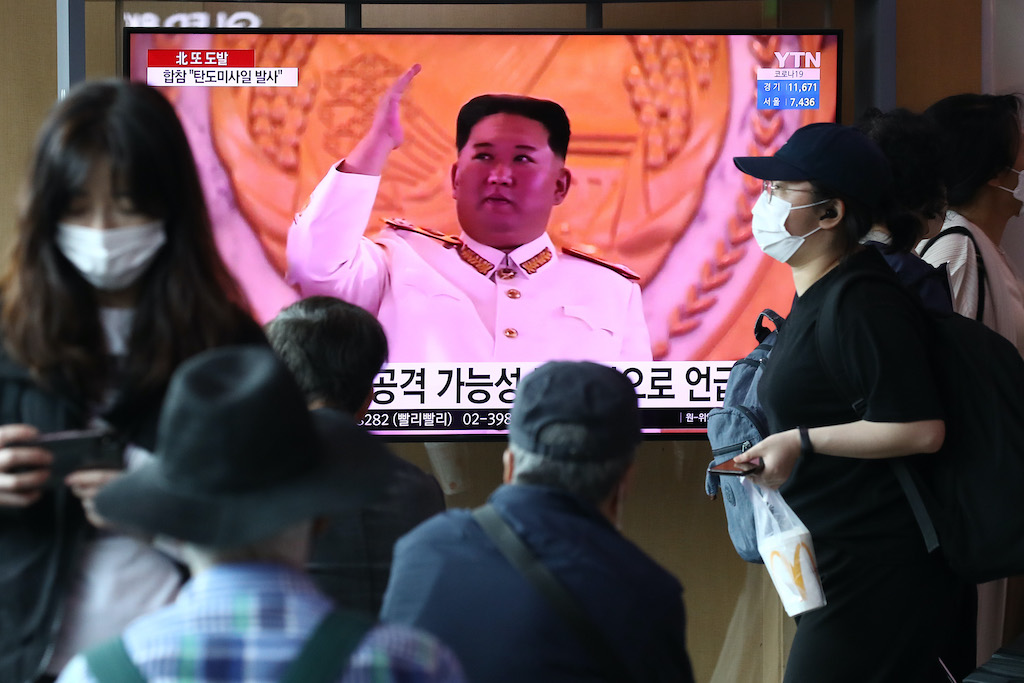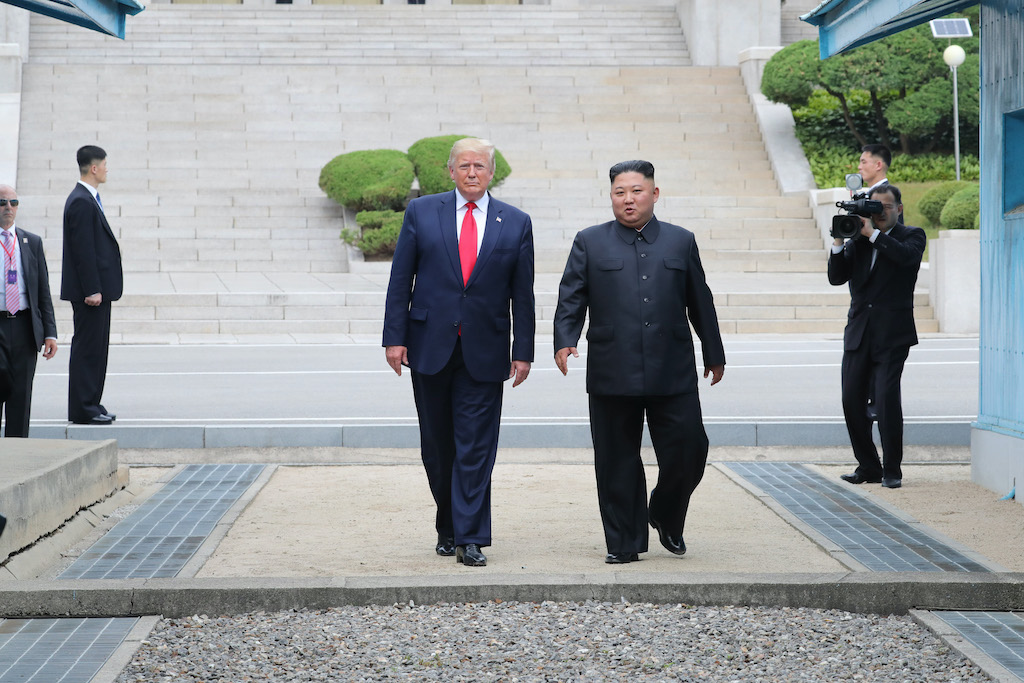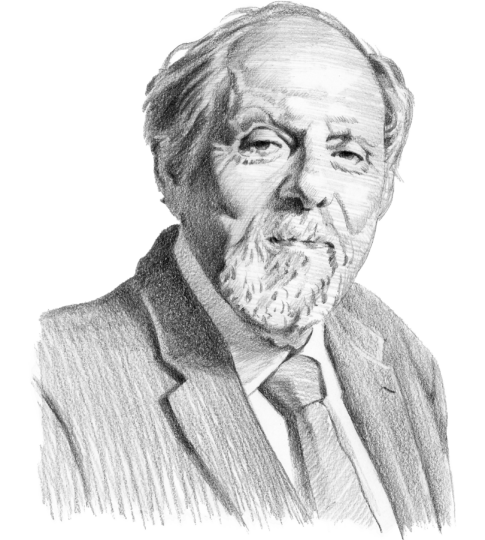North Korea ramps up its nuclear threats
Pyongyang is expected to run more missile and nuclear weapon tests to bring the world’s attention from Ukraine back to the Korean issue.

In a nutshell
- North Korea has noted that the U.S. never invaded a nuclear-armed country
- Threats to neighbors and the U.S. help the regime maintain domestic stability
- To steal the world’s attention from Ukraine, Pyongyang prepares nuclear tests
The war in Ukraine has geopolitical implications for the Far East that go beyond Russia’s imperial presence in that part of the world. Moscow’s invasion in Eastern Europe is geopolitically the most far-reaching event since the end of the Cold War. There have been hot wars following the Soviet Union’s collapse – Syria, Iraq, Yemen and Afghanistan. But none of them had the sort of global impact on countries’ military postures that Russia’s actions in Ukraine have generated.
Russian President Vladimir Putin endorsed the precept of Prussian strategist Carl von Clausewitz (1780-1831) that war is the continuation of politics by other means. The question is whether two Asian autocrats, China’s President Xi Jinping and North Korea’s dictator Kim Jung-un, will follow his lead and attempt to resolve their long-standing issues with military aggression. Much is at stake in how Beijing and Pyongyang will react to Moscow’s “special military operation” in Eastern Europe – not only for their neighbors involved but also for the rest of the world.
The long shadow of the Korean War
When the West won the Cold War in 1991, some thought that history had ended. Liberal democracy and the market economy prevailed, and there was no ideological dispute left. However, it is precisely the war in Ukraine that reminds us how much history, particularly real or imagined injustice, counts. What makes several Asian hotspots so dangerously volatile is that they are perceived to come from historical injustice.
The Korean War (1950-1953) was among the bloodiest conflicts after World War II. There has been no peace agreement signed between North and South Korea, and the Korean Peninsula is divided along the lines of the precarious cease-fire.
Pyongyang carefully observed international conflicts and studied the lessons from Washington’s attempts at regime change.
While South Korea has evolved from a militarized dictatorship to a stable democracy, North Korea remains stuck in a dynastic dictatorship. This fact makes relationships with the regime in Pyongyang highly complex affairs. On the other hand, there is great clarity about what North Korea wants from the world, mainly from the United States. Everything is about the survival of the regime and the deterrence of any force in the outside world that could threaten North Korea’s integrity.
Reliance on nuclear weapons
Long before the war in Ukraine, Pyongyang had studied conflicts and the lessons from Washington’s attempts at regime change. One thing was clear: none of the countries that the U.S. invaded possessed nuclear weapons. For the Kim clan and its inner circle, there can be no doubt that without the possession of nuclear arms, they would have shared the sorry fate of Muammar Qaddafi and Saddam Hussein. Nuclear weapons serve as life insurance. Beijing shares this view as it accepts Pyongyang’s nuclear ambitions, despite China’s advocacy of a nuclear-free Korean Peninsula.
Pyongyang must be carefully observing how Mr. Putin is playing the nuclear card. Of course, North Korea is still in the early stages of developing its nuclear arsenal, while Moscow is one of two preeminent nuclear powers in the world. Nothing is comparable here except for the instrument of atomic blackmail. The world was rightly shocked by how swiftly President Putin has brought the mass-destruction option into his campaign.

Obviously, the most concerned about Pyongyang’s nuclear ambitions are its immediate neighbors, South Korea and Japan. For Tokyo, the issue of whether to opt for a nuclear deterrence of its own is a particularly hot topic: Japan remains the only country that suffered nuclear strikes in a military conflict. Until recently, the Japanese public overwhelmingly supported the Treaty on the Prohibition of Nuclear Weapons (TPNW).
In reality, in forsaking nuclear deterrence, Japan has put itself under the nuclear umbrella of the U.S. It was only under the administration of President Donald Trump (2017-2021) that doubts about the reliability of the U.S. as Japan’s ally began to gain traction. One issue has been the Senkaku Islands dispute between Japan and China. Tokyo has doubts whether Washington would consider a Chinese grab at the Senkaku Islands a sufficient casus belli.
The other critical issue has been Tokyo’s anguish that Washington talked with Kim Jong-un without keeping its allies, South Korea and Japan, in the loop. On top of that, there is the dramatic issue of several Japanese nationals abducted and imprisoned by North Korea.
Pyongyang willingly provokes Washington with ballistic missile tests that have the potential to reach the American mainland.
Japanese and South Koreans do not trust the Americans but do not have a creditable alternative. There is no geopolitically viable alternative in today’s situation, and the North Koreans know this and act accordingly. Whatever happened behind closed doors, the chemistry between Messrs. Trump and Kim during their two meetings, in 2018 and 2019, seemed remarkably positive. President Joe Biden could not match his predecessor’s enthusiasm. But how could President Trump’s approach work? Pyongyang’s position is unshakable. The regime will not grant concessions as long as the U.S. does not fully and unconditionally recognize North Korea. Kim Jong-un sees Washington as committed to regime change and an existential threat to himself and his dynasty.
Scenarios
In its rhetoric, the North Korean regime relies on bellicose attacks against its foreign enemies, namely the U.S., South Korea and Japan, to rally the nation. But the full-fledged survival strategy of the regime is also based on domestic terror and nearly total control over the population.
Expect a nuclear test
Since the beginning of 2022, Pyongyang has conducted several highly provocative rocket tests. It aimed to demonstrate that it does not respect United Nations resolutions, that it violates the Japanese economic exclusion zone at will, and that it willingly provokes Washington with ballistic missile tests that have the potential to reach the American mainland. Expectations are that North Korea may launch another nuclear test in 2022, an action that will ratchet up tension in the Far East.
It is difficult to assess the viability and success of North Korea’s weapons test programs. Facts and fiction are interwoven in what the world is told of these, but it is better to err on the side of caution. In some cases, the reason and the timing of the tests are transparent. It can be a significant political event in the neighborhood, like the recent presidential elections in South Korea; it can be regional military maneuvers by the U.S. and allies; or it can be an important political date such as the anniversary of the founder of the Democratic People’s Republic of Korea, Kim Il-sung (he ruled it from 1948 until his death in 1994).
Warrior nation
It is necessary to understand the nature of North Korea’s political system to fully grasp the strategic relevance of its missile and nuclear programs. It is indeed a unique regime: no other country can be compared with it, not only because of the extreme seclusion practiced by Pyongyang. It is the very specific combination of dynastic rule, militarism and Stalinism that distinguishes North Korea.
How does this system survive despite its repeated failures that cause massive human suffering? The brainwashing through an almighty propaganda apparatus does not explain it all. The regime also has built a strategy of national cohesion on the idea of a warrior nation. The North Korean population is constantly on high alert against enemies; it overshadows all other concerns. The strategy has another major advantage too. If there is no invasion, no violation of the borders, the regime can legitimately claim to have fulfilled its foremost task – protecting the nation’s integrity and independence.
Notably, China has been supporting this strategy. It is a risky one, as an escalation toward a nuclear arms race in the Far East is certainly not in the interest of Beijing. Japan possessing a nuclear arsenal would be a nightmare scenario for China. However, Chinese President Xi Jinping keeps Pyongyang on a loose leash, although it remains an open question if he is always happy doing this.
South Korea’s firming stance
The behavior of the North Korean regime is highly unpredictable. To a certain degree, this unpredictability is by design. One thing seems certain: Yoon Suk-yeol, elected South Korea’s president on March 9, 2022, is known as a hawk when it comes to relations with the North. He has promised to steer a markedly more rigorous course than his predecessor Moon Jae-in.
It is unclear how the relations between the two Koreas will evolve in the months to come. Recently, Pyongyang made friendly comments about outgoing President Moon. His successor, who promised more support for the military and security sectors, will probably find himself the target of unkindness from the North.
Pyongyang does want the Korean issue to become marginalized. However, President Biden had put it on the back burner after the Trump-era turbulence. It is doubtful that the White House will prioritize North Korea under the present circumstances.
Unless Donald Trump returns to the White House, North Korea cannot expect the attention it enjoyed during his watch. The question is, how will Pyongyang react? Our money is on provocative actions, such as nuclear and ballistic missile tests, to remind the world of the regime’s disruptive capacities. We had better be prepared for unpleasant surprises.








